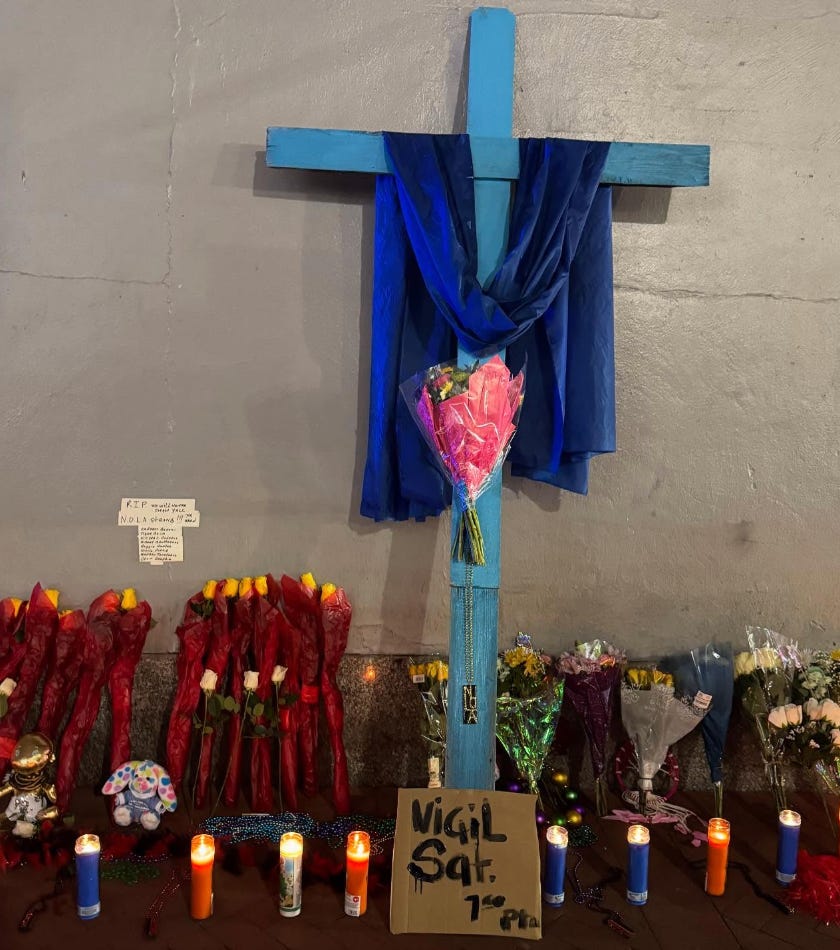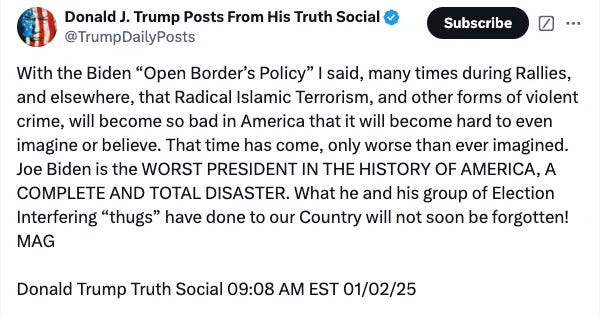Tragedy in New Orleans: Victims' Stories Overshadowed by Political Narratives
At least 15 people were killed when a vehicle was driven through a crowd along Bourbon Street in the early hours of January 1 in what the FBI is describing as a terror attack.

2025 began with tragedy in New Orleans, Louisiana, when 42-year-old Shamshud Din Jabbar plowed a truck through crowds of people on Bourbon Street during the first hours of New Year celebrations on Jan 1, 2025, killing 15 people and injuring dozens more in a ‘terror attack’ that shook the local community to its core.
In the immediate aftermath, social media erupted with false claims from Republican leaders and online commentators who suggested that the attacker was an illegal immigrant, seizing the moment to fuel anti-immigration rhetoric. However, these claims were swiftly debunked by journalists and local officials who revealed that Jabbar was a U.S.-born citizen, a military veteran, and a former real estate agent.
As the misinformation subsided, a different narrative emerged: the specter of ‘radical Islamic terrorism.’ Social media users displayed Din Jabbar’s ISIS flag that was on his truck, his intention to kill more people, and the police finding explosive devices across Bourbon Street. Mainstream news outlets soon shifted their focus to Jabbar's radicalization and his story.
Fear began to ripple through Muslim communities across the United States as this coverage and social media conversation began to focus on their community, which is already grappling with a rise in Islamophobia in the U.S.
“I am scared for our community,” said Amin Saed, a 57-year-old Muslim from Orlando, Florida, speaking on the condition of anonymity. “Every time this happens, it puts a target on our backs. This man does not represent us.”
Conservative pundits amplified these narratives, but in doing so, the victims and their stories were pushed to the background, drowning out the human cost of the tragedy.
One of those 15 victims was Palestinian-American and Muslim Kareem Badwai, a freshman at the University of Alabama. Kareem was studying mechanical engineering and was a bright young man with a ‘great future’, according to his family. Social media users who follow TUT directly messaged our team to share his story.
"He was incredibly smart and dedicated to his studies, always pushing himself to be the best," his family said. "On top of that, he was a talented athlete, known for his hard work and team spirit. But what truly set Kareem apart was his kindness. He was sweet, loving, and caring, always there for his family and friends."
Saed reflected on Kareem's story and the broader impact of the attack
“Everybody is affected by radical people like this,” Saed said. “Kareem’s story can help show people that we are not people to be scared of. We are real people with desires and dreams. We want to make it in this country without hate. We face the same threat as any other American.”





